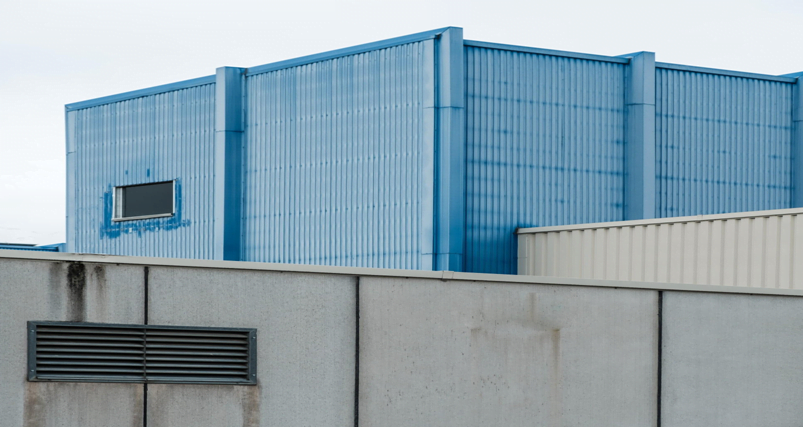
Moving things into storage can be a hectic task. You have to choose the right size of space from the very beginning and do all you can to ensure that your process runs smoothly from start to finish. Whether you are moving house, decluttering for a sale or you need a safe space for prized heirlooms, your first task is to decide the size of storage you will need.
Shipping or Storage Containers
These are both used for storage purposes. They are used interchangeably although they are not really the same thing. Originally designed to transport goods across the ocean, shipping containers are high-quality steel ‘tanks’ that are highly safe and portable and come in a variety of sizes and shapes. Shipping containers are very versatile, as they can be adapted to your individual storage requirements. The most common sizes are 1.5 feet long, 1 meter wide, and 2-meter high containers.
Storage containers can be used for any type of storage space, from offices to personal storage, thus applying to both commercial and private storage spaces. These containers fit easily into relatively small spaces and are extremely weather-resistant, so it is safe to leave them outside for loading and unloading.
Whatever type of storage container you may choose, it is necessary that when you embark on your storage project you choose the right vendor like safestore containers, that will meet your storage needs sufficiently.
Where can I use Storage Containers?
You may be wondering where you can use storage containers. You can use them anywhere! Storage containers can be used for both commercial and private purposes. Popular uses of storage containers include:
- In construction, it can be used for storage of work materials and building supplies, construction tools and equipment, providing temporary office space or as a field office, as a break room or a changing area.
- Residential storage unit applications usually revolve around simple, convenient forms for temporarily storing household objects. Storage containers provide an easy, secure way to keep things protected while doing repairs or remodeling the house. The installation of flooring and lighting can be messy and involves the removal of furnishings and furniture from the spaces being renovated. Moving those items into a storage unit protects them and keeps them safe while ensuring that they remain easily accessible to you. Also, many people turn to storage units as an easy way to move about. Rather than using a moving truck and then driving across town or around the country, loading them all into a storage unit is more convenient.
- Typical commercial and industrial storage container uses include: Building additional warehouse rooms, creating temporary office space for upgrades, a way for storing paperwork, storing extra inventory, and/or storing office furniture that is currently not being used.
- Education facilities and health care facilities also maintain containers as a form of safe storage. Beyond housing equipment, furnishings, and excess items, storage units provide an affordable, comfortable, protected location for storing materials during building and renovation projects.
Features to Consider Before Choosing a Storage Container Unit
When deciding what type of storage container unit you need, there are important features that need to be considered. This will help you make the best choice for your storage needs. Some of these features are:
Size:
This refers to the height and length of the storage container. Does your equipment or items fit into a 20-foot regular container? Will you want something a little bit bigger, such as a 10-foot or 15-footer? Some vendors can purpose-size the containers to suit your needs.
In the event that you select a custom-sized package, certain attributes, such as the number of doors accessible, can be specified in your preference. Make sure to talk about these specifics with the manufacturer before finishing a custom order
Mobility and Ramps:
Do you intend to move your storage container? If so, for easier mobility, you might find a truck storage van or a container on wheels. Many suppliers can install containers of any size on wheels and a frame that suits your dock bay. Planning to move objects regularly in and out of the container? Enquire about ramps and features for easy access.
Doors:
Will you be accessing your storage container often? If not, a regular swing-out door should be enough. Normally these doors come with a simple locking mechanism that allows easy access and storage. However, if you plan to regularly access your container, you should lookout for a premium door that usually opens and closes with less effort. Some containers even come with more than one door.
Flooring:
You should consider flooring that is in line with the purpose of the storage container. For aesthetic purposes too, flooring may be an important feature to consider.
Most storage container vendors will provide you with different storage options and packages. You should be aware of your needs and the type of storage container that will best suit these needs.
Important Questions to ask your Storage Container Vendor Before you buy
Before going ahead with your storage vendor, ask the following questions to ensure you are hiring the best one for your project.
- Do they cover installation and delivery? If the dealer would have to bring the product to you, this is crucial to ask as distribution may not automatically be included in the price. Follow-ups to this question include: How much are the delivery costs? How long does delivery take?
- What are the funding options? If you plan to draw on credit from your mortgage, you can always test to see what financing opportunities the dealer offers. Some dealers provide the financing in-house. You can get better rates than you would through your bank or lender, so checking out what terms the dealer offers is worth it. Financing often gives you more flexibility while helping to keep your cash reserves going. This is important if you have the minimal cash flow or if your organization is growing or even just starting.
- Does the container have the ability to withstand climate changes? When the products to be stored are susceptible to high temperatures, you will need a form of climate protection. Are insulation and ventilation systems available?
What is the difference between shipping containers and storage containers?
A simple explanation is that regular 20ft and 40ft shipping containers can be used for both storage and shipment, but other types of storage containers are only suitable for transport and are not shippable.
Read Also:




























